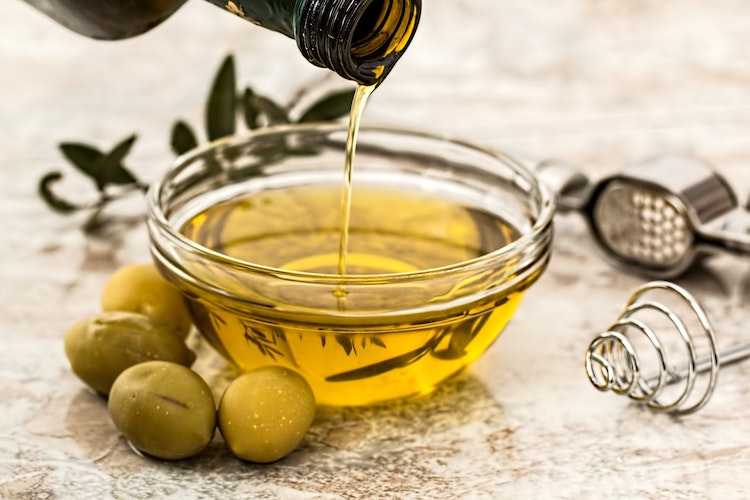The Best Way to Store Olive Oil for Barbecue Enthusiasts
Written By James Morgan
As a barbecue enthusiast, you know the importance of high-quality ingredients, and olive oil is no exception. Proper storage of olive oil is crucial to preserve its flavor and health benefits. In this comprehensive guide, we'll cover everything you need to know about how to store olive oil, ensuring it remains fresh and flavorful for your grilling adventures.

Why Proper Storage of Olive Oil Matters
Olive oil is a staple in many kitchens, especially for those who love grilling. However, improper storage can lead to oxidation and spoilage, ruining the taste and nutritional value. Understanding the factors that affect olive oil's shelf life is the first step in proper storage.

Factors Affecting Olive Oil Shelf Life
- Light: Exposure to light can cause olive oil to become rancid. Dark bottles or opaque containers are ideal for storage.
- Heat: High temperatures speed up the degradation process. Store your olive oil in a cool place away from heat sources.
- Air: Contact with air leads to oxidation. Always seal your olive oil container tightly after use.
- Age: Olive oil has a shelf life of about 18-24 months. Always check the manufacturing date and use it before it expires.

Choosing the Right Container
The container you use can make a significant difference in the quality of your stored olive oil.
Dark Glass Bottles
Dark glass bottles are preferred because they block light and protect the oil from UV rays. Amber or green glass bottles are commonly used.
Stainless Steel Containers
Stainless steel containers provide excellent protection against light and air. They're durable and prevent contamination.
Ceramic Jars
Ceramic jars with tight lids are also a good option. Ensure they are food-grade and not reactive to the oil.

Optimal Storage Conditions
Now that you have the right container, let's discuss the best storage conditions for olive oil.
Cool and Dark Place
Store your olive oil in a cool, dark place like a pantry or cupboard. Make sure it's away from the stove, oven, or other heat sources.
Consistent Temperature
Maintain a consistent temperature, ideally between 60-72F. Fluctuations in temperature can negatively impact the oil.
Avoid Refrigeration
Refrigerating olive oil can cause it to become cloudy and thick. Although it doesn't harm the oil, it makes it harder to use. If you must refrigerate, allow it to return to room temperature before use.
Practical Storage Tips for Grilling Enthusiasts
As a barbecue lover, you might want to keep olive oil handy for quick access during your grilling sessions. Here are some practical tips:
- Use Small Containers: Transfer a small amount of olive oil to a smaller container for daily use. Refill as needed from the main storage.
- Avoid Plastic: Plastic containers can leach chemicals into the olive oil. Always opt for glass, stainless steel, or ceramic.
- Label Your Containers: If you're using multiple types of olive oil, label them to avoid confusion.
- Keep It Covered: Always keep the container covered to minimize exposure to air and light.
Recognizing Spoiled Olive Oil
Even with the best storage practices, olive oil can eventually spoil. Here are some signs to look out for:
- Rancid Smell: Spoiled olive oil has a distinct, unpleasant smell. If it doesn't smell fresh, it's time to discard it.
- Changed Color: If the oil has turned cloudy or has darkened, it may be spoiled.
- Unpleasant Taste: Fresh olive oil has a pleasant, slightly peppery taste. A bitter or sour taste indicates spoilage.
FAQs on Storing Olive Oil
Can you store olive oil in the fridge?
While you can store olive oil in the fridge, it's not recommended as it can cause the oil to solidify and become cloudy, affecting its usability.
What's the best container for olive oil storage?
Dark glass bottles, stainless steel containers, and ceramic jars are the best options. They protect against light, air, and heat.
How long does olive oil last once opened?
Once opened, olive oil is best used within 6 months to a year for optimal flavor and quality.
Can I store olive oil near the stove?
It's best to avoid storing olive oil near the stove as the heat can cause it to spoil faster. Opt for a cool, dark place instead.
Why has my olive oil changed color?
Olive oil can change color due to exposure to light, heat, or air. If it has darkened or become cloudy, it might be spoiled.
Is it okay to use olive oil past its expiration date?
It's not recommended to use olive oil past its expiration date as it may have lost its flavor and beneficial properties.
Conclusion
Proper storage of olive oil is essential for maintaining its quality and flavor, especially for barbecue enthusiasts. By following these tips and understanding the factors that affect olive oil's shelf life, you'll ensure your olive oil remains fresh and enhances your grilling experience.
For more tips on cooking and grilling, check out our other informative articles.
As an Amazon Associate, I earn from qualifying purchases.



